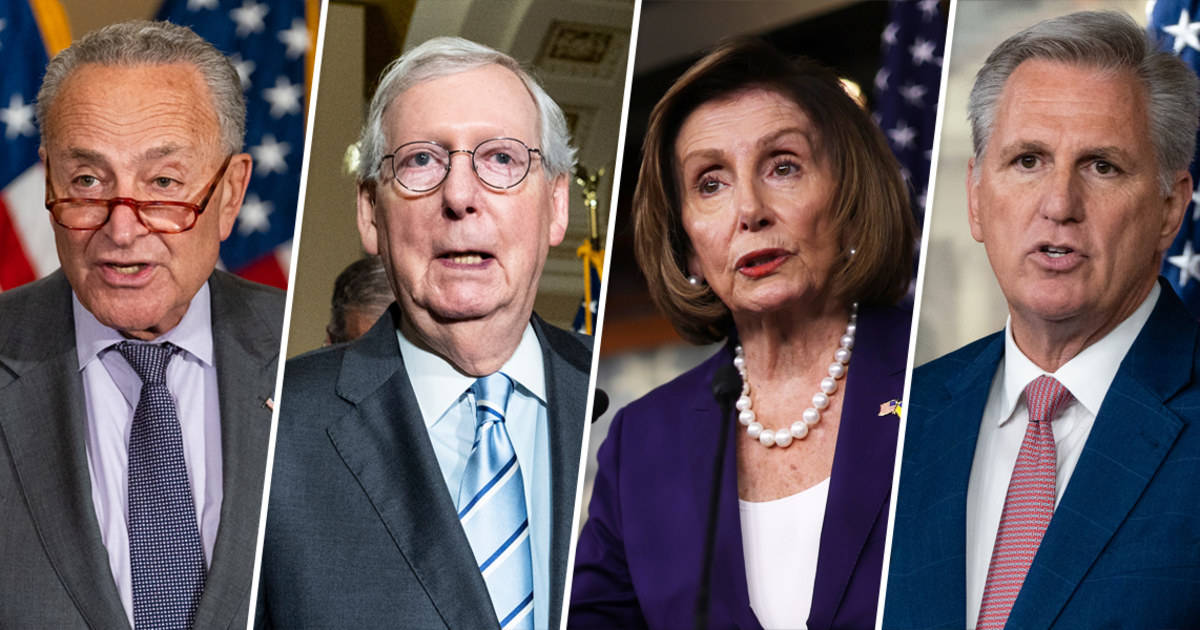WASHINGTON — With the 2022 election over, Congress will return to work Monday with a packed to-do list for the final weeks of the year.
The list includes reaching a government funding agreement, reauthorizing the Defense Department, passing a major election overhaul measure, codifying federal recognition of same-sex marriage and voting on nominations. And the House Jan. 6 committee is poised to wrap up its work before it dissolves.
Republicans underperformed expectations in the midterm elections and failed to deliver a red wave. NBC News has projected that Democrats will keep control of the Senate for two more years, while control of the House is yet to be determined.
“All I can tell you is that we are going to try to have as productive a lame duck session as possible,” Senate Majority Leader Chuck Schumer, D-N.Y., told reporters Sunday, notifying colleagues that there will be “heavy work” that includes “long hours.”
“I’m going to talk to my caucus. I’m going to talk to the Republican leadership and see what we can get done,” he said.
Here’s a rundown of the big agenda items and where they stand:
Fund the government
Before lawmakers left for recess, Congress set a Dec. 16 deadline to strike a full-year funding deal to keep the government running. That leaves about a month for the House and the Senate to come together on a package, and Democrats will need to negotiate with Republicans to clear the 60-vote threshold in the Senate.
It will be a swan song for Senate Appropriations Committee Chair Patrick Leahy, D-Vt., and Vice Chair Richard Shelby, R-Ala., who are retiring after having served in the chamber for decades.
Both party’s leaders want to reach a deal, rejecting right-wing House Republicans’ demands to punt it to next year. The GOP’s midterm underperformance could deflate its hopes of holding off.
It’s unclear when there will be an agreement and what it would look like. Among the many lingering issues is whether the Justice Department will get the $34 million it says is “critically needed” to continue its criminal investigation of the Capitol riot on Jan. 6, 2021.
Prevent stolen elections
A package of laws to tighten the Electoral Count Act to make it harder for losing presidential candidates to steal elections has passed the House. A similar version sitting the Senate, negotiated by Sens. Joe Manchin, D-W.Va., and Susan Collins, R-Maine, is expected to get a vote in the lame duck session.
The Electoral Count Reform and Presidential Transition Improvement Act would revise an 1887 law to restrict the vice president’s role to counting votes, lift the threshold to object to electors, bolster laws about certifying elections for the correct winner and seek to promote orderly presidential transitions. Its endorsements by Schumer and Senate Minority Leader Mitch McConnell, R-Ky., indicates it will draw broad ideological support.
A package of revisions to the bill easily cleared the Senate Rules and Administration Committee on a 14-1 vote in September. Some senior aides have speculated that it could be tied to the government funding bill to speed up the process; that hasn’t been determined.
Same-sex marriage bill
The House has passed a bipartisan bill to codify federal recognition of same-sex marriage. The Senate punted it to the lame duck session, with the leader of the effort, Sen. Tammy Baldwin, D-Wis., saying the chamber needed more time to secure 60 votes.
Republican support has been somewhat elusive, with senators in the caucus voicing concerns about religious freedom and polygamy. Baldwin and her chief GOP co-sponsor, Collins, have emphasized that those concerns will be addressed and that the final bill would clarify that it wouldn’t protect polygamous marriages.
Still, it remains to be seen whether the 50-member Democratic caucus can secure the minimum 10 Republican votes it needs to break a filibuster and pass the bill, which is partly an attempt to guard against fears that the conservative Supreme Court could strip protection for same-sex marriage as it did with abortion.
Authorize the Pentagon
Congress must pass the annual National Defense Authorization Act, a military policy bill that structures the Pentagon. It is usually a smooth process that wins broad bipartisan support.
An open question this year is whether Congress will accept Manchin’s recommendation to attach permitting reform — an overhaul of the process of authorizing energy and infrastructure projects — to the NDAA.
Jan. 6 committee’s finale
The House Jan. 6 committee is sunsetting at the end of the year, and members have yet to release a final report on how the Capitol attack happened and recommendations to prevent anything similar. Members have kept open the possibility of holding another hearing to roll out their findings.
And there are other loose ends to tie up. Before the election, the committee subpoenaed Donald Trump for documents and testimony. The former president has sued to block the subpoena. That and other unfulfilled subpoenas leave committee leaders with decisions about whether to recommend criminal charges.
Judges and nominations
Schumer and Democrats were considering a major push to confirm judges in the lame duck session, fearing they might lose the Senate majority and Republicans wouldn’t play ball for the next two years. But the Democrats have held on to control, which alleviates pressure to rush through judges before Christmas.
The Senate could still vote on nominations if it has time between negotiations and votes on other more pressing matters, but Democratic leaders are unlikely to keep members in through the holidays to vote on nominees whom they can confirm early next year.
Share your story or advertise with us: Whatsapp: +2347068606071 Email: info@newspotng.com














